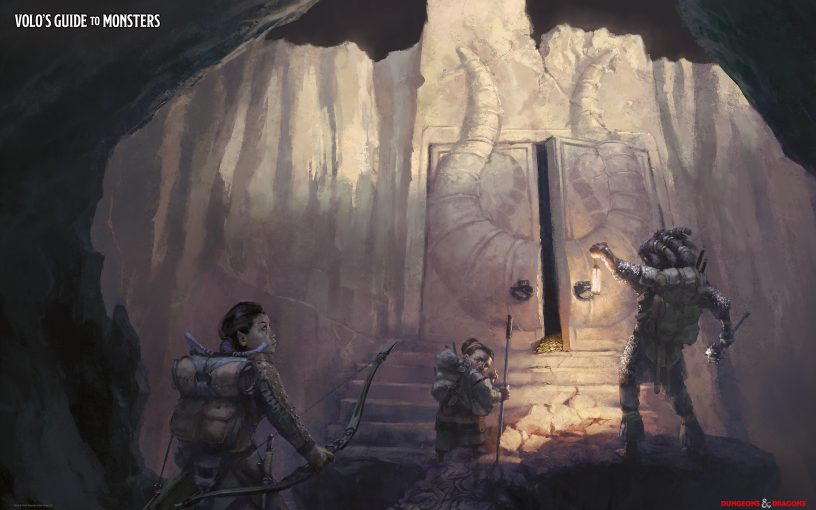It seems fitting to interrupt the intensity of my Flight of the Ideator series with a post about worldbuilding, personal play, and the like. The kinds of things that were partially responsible for my sanity through my months of unemployment. And it’s been over a year since my last Dungeons & Dragons post here, so I’d say this is overdue.
Not unlike Colonel John “Hannibal” Smith, I love it when a plan comes together. That feeling when the stars align. When the hours in which friends don’t have work shifts or commitments interlock like Tetris blocks and thoughts of rescheduling blink out of existence. “FINALLY, we can play some D&D.” It wasn’t until I assumed the mantle of Dungeon Master, though, that I began to appreciate time spent thinking about D&D and that particular activity – play – in a more nuanced way.
I didn’t really have to struggle with the nebulous concept. Partially because I was too busy doing a thing for which I had no name to spend time giving it one. Fortunately, while listening to a fantastic podcast called tl;dm, I heard podcaster and RPG mastermind/mogul James D’Amato talking about personal play. He goes into it thoroughly with the podcast’s hosts, the entertaining duo of Tyler Samples and Alan Linic, at the 20-minute mark of the episode and I could not be more on-board with all of it.
Proposing Personal Play
As I write this, I’m in the process of starting to DM my second campaign. Naturally, I’m trying to incorporate everything I learned from launching the first one. There are some newer players in the group, so finding a middle ground between limiting and overwhelming them is important. I’ve tried to make it clear, though, from day zero, that every decision they make is going to have a butterfly effect. Every line of backstories they write may come back to haunt them.
An Elf with the Noble background? That necessarily means that the world includes (or included) a stratified elven society. It’s something the rest of the party may never see or know. And the way the story unfolds will dictate how much of that corner of the world I’ll actually need to build. But the implications of that extrapolated background had to shape the character in apparent and hidden ways. How does the player’s class and/or alignment reflect it? How will it nudge all of the decisions they make? Might their experience of it differ from similarly positioned (N)PCs?
My work with a players on their characters isn’t that different from the way I’ve directed actors. I want everyone at the table immersed in both individual and shared stories. And just as an actor’s craft doesn’t all happen on a stage, roleplaying is not chained to a gaming table. Personal play is the imagination-based character work that usually happens away from the table. Often away from other party members. As long as it won’t conflict with other character journeys, I encourage it whenever I can. Sometimes, it’s digging deeper into backstories before a session begins. Or I’ll send a random provocative character question, out of the blue, between game nights.
NPPPCs: Non-Player Personal Play Characters
As every DM knows, players have a knack of selectively reacting to the enticing details with which they are presented. Beyond my job of setting the stage, when players don’t follow-up on an in-world detail, I make sure that their (in)action has consequences. As the DM of a dynamic living world, I’m constantly playing through “offstage” activities on my own. And I think it’s helpful to think of that, too, as personal play. I’ve also found it beneficial to make my approach to it distinct from the way I worldbuild. It can make for less perfect, more realistic NPCs – even if the PCs never meet them.
For example: Just because the players didn’t pick something up that they spotted at the side of the road, that doesn’t mean no one else will. Now, I’d never actively punish players for not realizing that one of my favourite tiny details has some importance, but I have no problem watching them getting frustrated while trying to finish a puzzle when I know they’re missing a non-essential piece. In D&D, as in real life, mysteries can go unsolved. And maybe one day, long after they’ve spent the gold they earned bringing some quest to its conclusion, they’ll cross the path of the NPC who’s holding the once-infuriating loose end. Delicious. [insert maniacal laughter]
The Play’s The Thing
We live in an era of adult colouring books and pseudo-scientific studies recommending sudoku (or whatnot) for mental agility. If you’re still reading, I probably don’t have to sell you on the idea of playing roleplaying games, but I think it’s important to promote the benefits of personal play as part of a complete breakf— RPG experience. Both for players and DMs (or whatever other title you’re using for that job).
I feel like it’s comfortably cliché to suggest to players that the more they put into it, the more they’ll get out of it. Personal play is a very concrete answer to what shapes that can take. And it has as many flavours as roleplaying itself. As I begin to incorporate it, I’m taking a theatrical approach – both in the performative and cerebral senses – but am curious about other perspectives. Since learning the term, I’ve discovered the distinct (but probably applicable) world of solo roleplaying and want to dig into how its techniques might inform and assist personal play.
I definitely recommend listening to tl;dm in general and the section I mentioned of that one episode in particular. There are some great examples of personal play described in it. And if you use personal play and have some technique or other that works for you, I’d love to hear about it.

